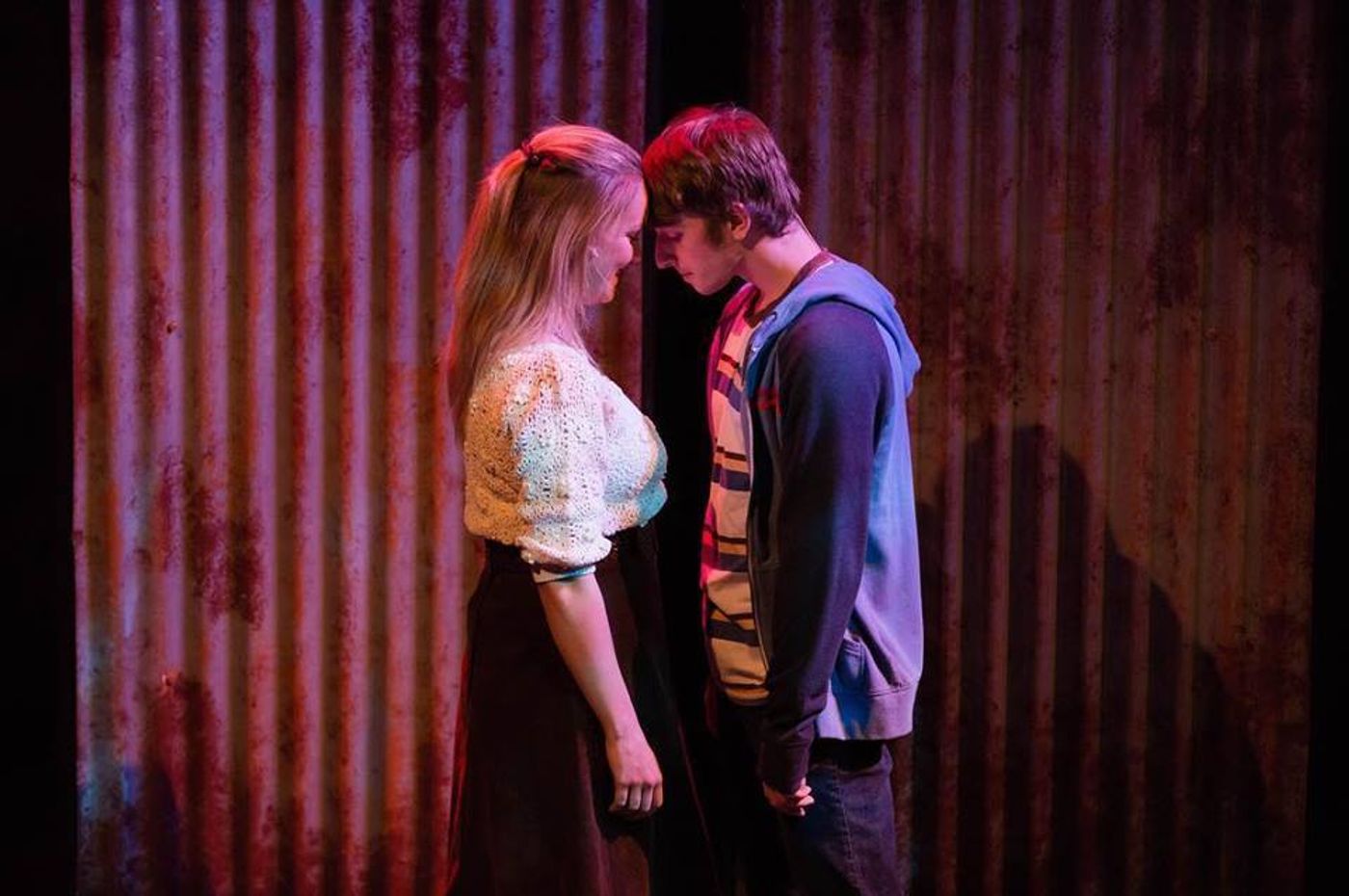Review: THE BEAUTIFUL GAME at University of Utah Department of Theatre

After opening night of the U.S. premiere of Andrew Lloyd Webber's THE BEAUTIFUL GAME, the director flew to Brazil to stage the composer's "The Phantom of the Opera."
Not a frequent occurrence at a university theater program.
Under the highly professional direction of Denny Berry, the musical by the University of Utah Theatre Department is lovingly produced and highly enjoyable. With a vibrant 11-piece orchestra led by Alex Marshall and attractive choreography under Berry's tutelage by student Jesse Klick, BEAUTIFUL GAME scores.
Audiences see Webber's capabilities when he's not trying to write a bigger hit than his last big hit in this first stateside production of BEAUTIFUL GAME, a wise choice for the department.
Webber is well-known for "Phantom," "Cats," "Evita," "Jesus Christ Superstar" and the current "School of Rock." And show me a Utahn who hasn't seen a production of "Joseph...Dreamcoat," and I'll show you a Utahn who has never been to the theater. These megahits have made him the most financially successful composer of our time. Actually, his worldwide profits from "Phantom" alone could fund a third-world country.
But he has also written much less popular musicals - "Song and Dance," "Starlight Express" and "Aspects of Love." And some outright flops: "By Jeeves," "The Woman in White" and "Whistle Down the Wind." Even "Sunset Boulevard" wasn't assured to be a hit after its London premiere.
In between "Whistle" and "Woman in White," Webber wrote BEAUTIFUL GAME, with a strong sports and politics theme - and it's a complete break from his lavishly staged works. It was first seen on the West End in 2000, where it ran for nearly a year with mixed reviews, reworked until the title "The Boys in the Photograph," and then revived in London with the original title in 2009.
Like other Webber misfires, BEAUTIFUL GAME has never been seen stateside, until Berry saw its potential for U students. Beyond the stellar direction, the well-executed dancing strongly references soccer movements and there are some strikingly good songs. In this review, it's also great fun to champion the performance of Lindsie Konsgore in a lead role of Mary McGuire. The entire cast is confident, with a good understanding of their characterizations, but Konsgore stands out among the other talents with sweet and strong vocals and a top-notch acting performance.
BEAUTIFUL GAME is set in Belfast in 1969-71, where amateur players of football (or soccer, to Yanks) are dedicated to turning pro. The exact time period is during something called "The Troubles," but Dramaturg Mark Fossen explains that very well in the program notes; it's enough to know that Catholics and Protestants are at war with each other, and Ireland continues to struggle for its independence. The story focuses on five teenagers in the team, the priest who manages it and the girls the lads are involved with romantically; so the topic of young love is also a subject.
The lyrics and book were written by Ben Elton, a comedian little known outside of England and author of some witty plays. There are more genuine laughs in BEAUTIFUL GAME than Webber's other works combined. "I've never had a shag in the middle of a riot before," remarks one character in a deadpan brogue. (Notable in this production is the superb dialect work by Sarah Shippobotham. Equally strong is Thomas George's set design and costumes by Peter Terry.)
The songs don't strive for operatic grandeur; they are more traditional musical theater compositions with echoes of Irish folk in the orchestration.
For musical theater enthusiasts, it's joyous to discover songs like "Don't Like You," in which the main couple discover their fondness for each other; "The First Time," for the couple's wedding night; and Webber's affection for soaring ballads is evident in "If This Is What We're Fighting For." "Let Us Love in Peace" is a second heartfelt song that express essentially the same sentiment, but the melody and instruction in the lyrics lodge in our heart:
Time to find out who we are. / Time to find our lucky star. / Time for all our pain to cease. / We'll love in peace.
Just imagine no more violence. / No more bombs. The sound of silence. / Time to be. You and me. Time to love in peace.
Reader Reviews
Videos

